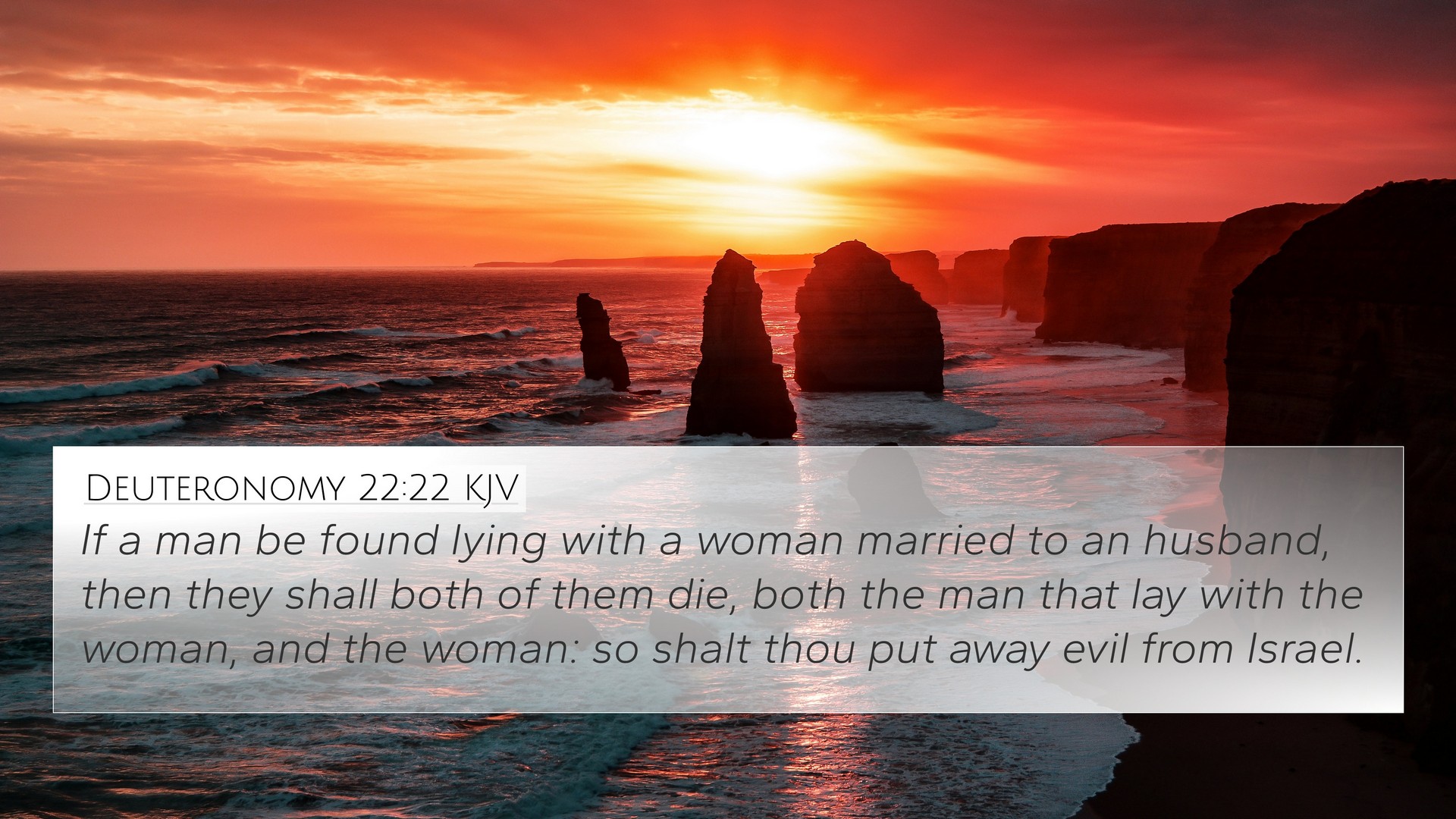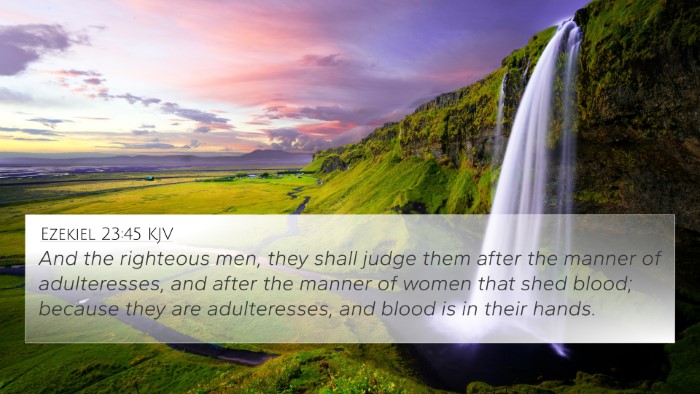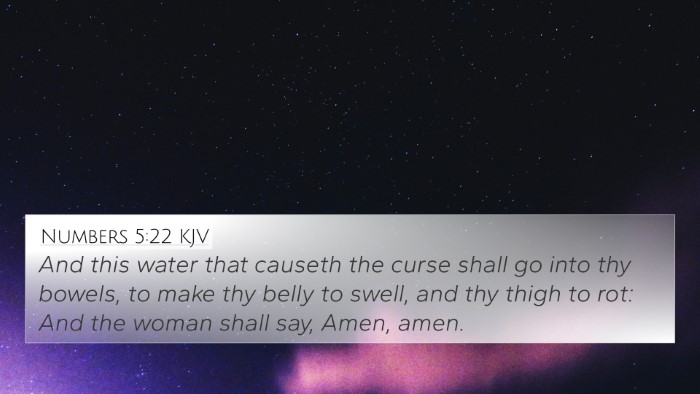Understanding Deuteronomy 22:22
The verse states:
"If a man is found lying with a married woman, then both of them shall die, the man who lay with the woman, and the woman; thus you shall purge the evil from Israel."
Summary of Meaning
Deuteronomy 22:22 addresses the moral and legal implications of adultery within Israelite society. The severe consequence of death reflects the gravity of the offense against both God's law and the sanctity of marriage.
Insights from Public Domain Commentaries
Matthew Henry
Matthew Henry emphasizes the importance of upholding the sanctity of marriage and the protection of societal morals. He notes that this law served to deter immoral behavior and maintain the distinction of God’s people.
Albert Barnes
Albert Barnes highlights the collective responsibility of the community to uphold purity and righteousness. He explains that such laws were instrumental in maintaining the moral fabric of Israel, reflecting God’s holiness and justice.
Adam Clarke
Adam Clarke provides a contextual understanding of the cultural significance of marital fidelity and its social ramifications. He notes that the death penalty reaffirms the seriousness with which God views the covenant of marriage.
Biblical Cross-References
- Leviticus 20:10 - Describes the punishment for adultery, echoing similar sentiments as Deuteronomy 22:22.
- Exodus 20:14 - The commandment directly forbidding adultery, reinforcing the moral standard expected by God.
- Proverbs 6:32-33 - Highlights the folly and consequences of committing adultery.
- Matthew 5:27-28 - Jesus expands the understanding of adultery to include lustful thoughts, emphasizing a deeper moral requirement.
- Hebrews 13:4 - Affirms the sanctity of marriage and states that God will judge the adulterers.
- John 8:4-5 - The story of the woman caught in adultery illustrates the law’s implications and the need for mercy.
- Malachi 2:16 - God’s perspective on marriage, expressing His disdain for divorce and unfaithfulness.
Thematic Connections Between Bible Verses
This verse connects to numerous themes found throughout Scripture such as:
- Morality and Ethics: The laws regarding marriage and fidelity serve as foundational ethical concepts in biblical teaching.
- Judgment and Mercy: While the law prescribes death, the New Testament reveals the importance of repentance and forgiveness.
- Community Responsibility: The enforcement of such laws requires communal involvement to uphold righteousness among God’s people.
Tools for Understanding and Cross-Referencing
To enhance study and understanding, individuals can utilize:
- Bible Concordance: A useful tool for locating specific verses and understanding their context.
- Cross-Reference Bible Study: Methods to explore links between verses, uncovering broader biblical teachings.
- Bible Reference Resources: Comprehensive materials that allow for deeper exploration of themes and connections.
Conclusion
Deuteronomy 22:22 serves as a crucial text for understanding the seriousness of marital fidelity in the eyes of God and the implications for individuals and the community. By engaging with public domain commentaries and exploring cross-references, one can appreciate the layered meanings and interconnectedness of biblical teachings.
Further Study Suggestions
- Identifying connections between Old and New Testament: Explore how themes of adultery and marriage are treated across biblical texts.
- Detailed cross-reference between Gospels: Study how different Gospel writers address the issue of adultery.
- Comparative study of Pauline epistles: Analyze Paul’s teachings related to marriage and fidelity.








